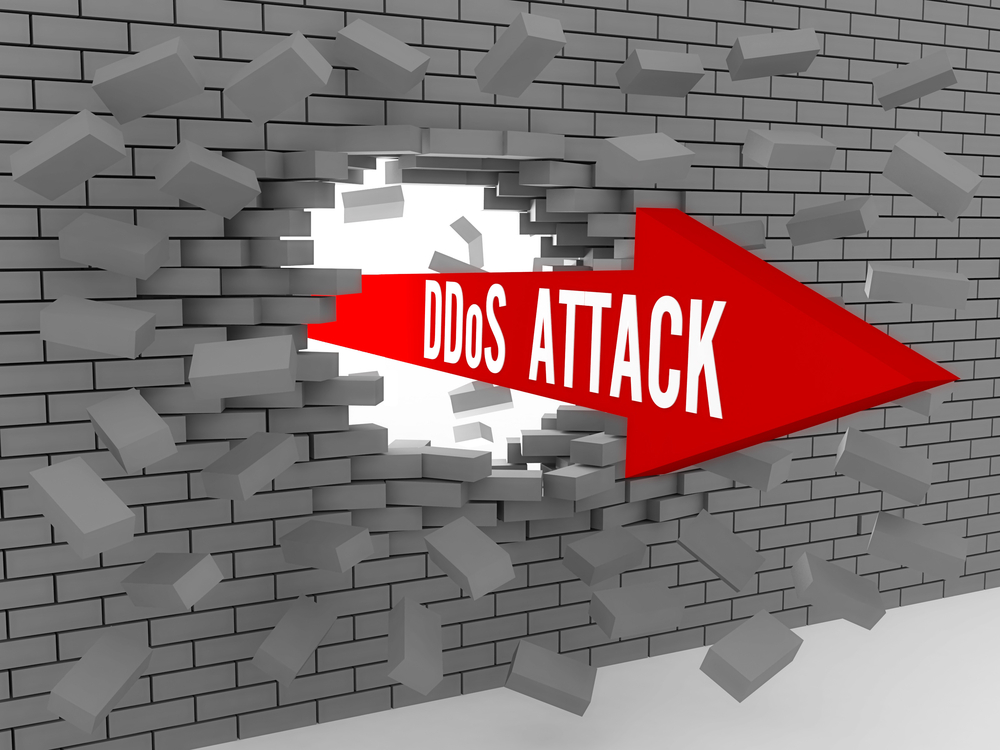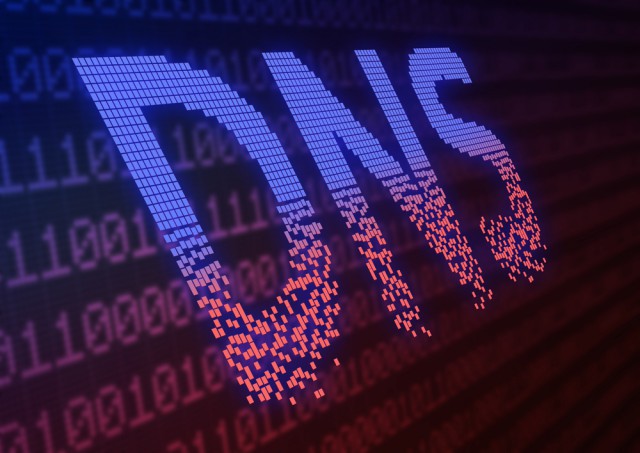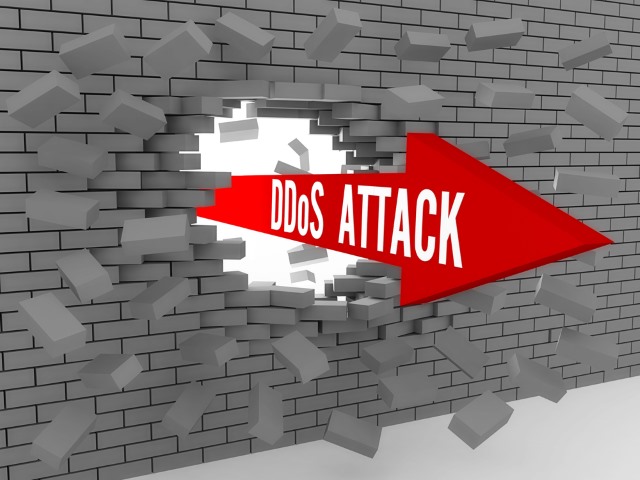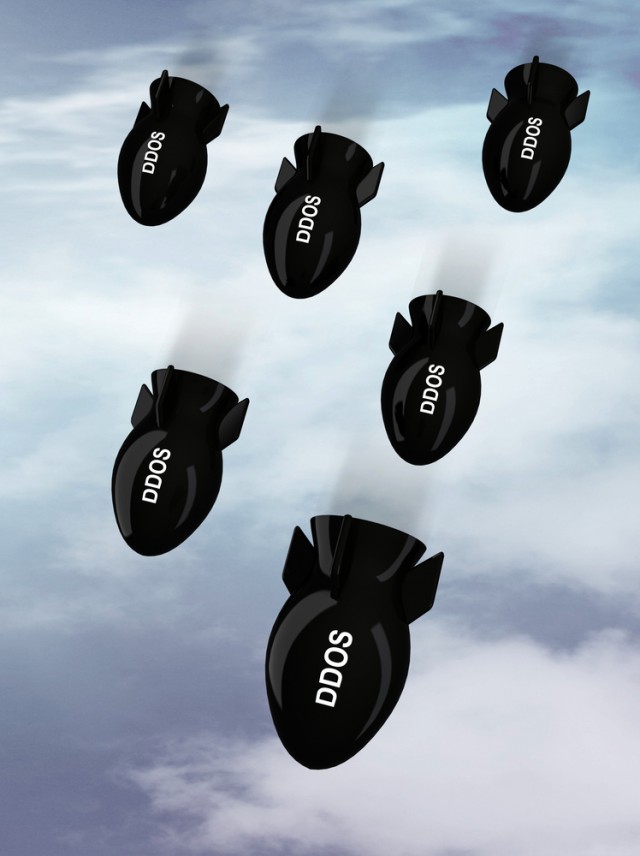
Number of DDoS attacks down but speed and size increases
The number of DDoS attacks fell more than 40 percent to 97,700 attacks in the second quarter of 2016 according to the latest threat report from DDoS security service Nexusguard.
The report reveals there was a sharp dip in distributed reflection denial of service (DrDoS) attacks, with DNS-based attacks falling 97 percent compared to the previous quarter. However, recent DDoS attacks on cybercrime journalist Brian Krebs and OVH, a French internet hosting provider, broke records for speed and size.

Inventor of DNS on the DYN attack: 'DDoS threatens our values and freedoms, as well as our surfing'
Imagine standing in line at a coffee shop, the place is brimming with people all shouting their order at the one overwhelmed barista. You place your order but he can’t hear you. You shout it, you scream it over the din of the thousands of people also ordering their coffee, but the barista just shrugs because he can’t get your order much less process it. No coffee for you. As you leave you realize those thousands of other customers aren’t even customers, they were just noise generated to keep you from getting your coffee.
Welcome to DDoS.

Dyn DDoS attack used Chinese firm's unsecured IoT devices
Following the large scale cyberattack that took down a number of high-profile sites last Friday, a Chinese electronics component manufacturer has admitted that its products were used by the attackers behind the disruption.
Hangzhou Xiongmai Technology, which produces DVRs and internet-connect cameras, has come forward to acknowledge that its products were exploited and that the attackers had taken advantage of security vulnerabilities resulting from weak default passwords.

Mirai botnet code used to launch DDoS attack on Krebs On Security leaks online
Fears are mounting that there could soon be a rise in large scale DDoS attacks after the source code used to launch the recent crippling attack on Krebs On Security was shared on a hacker forum.
Brian Krebs' website was hit by what has been described as the largest ever DDos attack recently, and the Mirai botnet source code has now been made available for anyone to make use of. The style of attack is particularly interesting as it involves using compromised Internet of Things devices such as webcams and other connected IoT hardware.

Security commentator Brian Krebs hit with the biggest DDoS attack ever
Attacks on websites are a daily occurrence so to get any real attention an attack needs to be something special. Starting on Tuesday, Brian Krebs' security blog, KrebsOnSecurity.com, was hit with what is being described as "the largest DDoS the internet has ever seen".
Despite being clobbered with a colossal 665 Gbps of traffic, Krebs' site remained online thanks to the anti-DDoS efforts of security firm Akamai. It is thought that Krebs was targeted for his exposés of hackers, and the attack was delivered via a huge number of hacked IoT devices.

DDoS attacks rarely strike businesses just once
A company is rarely attacked by a DDoS (distributed denial of service) just once. If it happens once, it will probably happen again, which is why constant preventive measures are required, if a company wants to keep their online services operational.
These are the results of a new report by Kaspersky Lab. Entitled Corporate IT Security Risks 2016, it says that one in six companies were victims of DDoS attacks in the past 12 months. The majority of those attacks were aimed against construction, IT and telecommunications companies.

6 steps for defending against DDoS attacks
If your business hasn’t already faced a distributed denial-of-service (DDoS) attack, brace yourself: fake traffic is coming.
Your DevOps team and IT service desk need an action plan to handle these threats. This article will take you step-by-step through the process of identifying, stopping, and responding to DDoS attacks.

The rise of the Linux botnet
A new report from Kaspersky Lab on botnet-assisted DDoS attacks shows a steady growth in their numbers the second quarter of this year.
SYN DDoS, TCP DDoS and HTTP DDoS remained the most common attack scenarios, but the proportion of attacks using the SYN DDoS method increased 1.4 times compared to the previous quarter and accounted for 76 percent.

Russia becomes main target for DDoS attacks
There has been a huge increase in the number of DDoS (distributed denial of service) attacks in the second quarter of this year, a new research report by security experts Nexusguard says.
According to Nexusguard’s Q2 2016 Threat Report, there has been more than 182,900 attacks in Q2 this year, with the majority falling onto Russia.

DDoS attacks increase by over 80 percent
In the second quarter of this year DDoS attacks increased by 83 percent to more than 182,900, according to the latest threat report from security solutions company Nexusguard.
The report shows that Russia has become the number one victim country. Starlink -- a Russian ISP supporting small, medium and large enterprises -- received more than 40 percent of the DDoS attacks measured over a two-day period. This targeted DNS attack also pushed the mean average DDoS duration to hours instead of minutes, as measured in the previous quarter.

DDoS attacks are getting worse
Just a couple of days after a horrendous DDoS attack took down Pokemon GO servers for a day, Arbor releases its new report on the state of DDoS around the globe, which basically says things are only getting worse.
The reasons are still the same -- DDoS attacks are simple to launch, cheap and easy to obtain, for anyone "with a grievance and an internet connection".

Pokémon Go taken offline by PoodleCorp DDoS attack -- and the hackers have more in store
Pokémon Go has proved itself to be a rare phenomenon, and it has taken the world by storm. Attracting casual gamers of all ages the augmented reality title, Pokémon Go has seen people hitting the streets in search of elusive Pokémon -- until the servers overloaded.
There have been a few glitches with Pokémon Go, largely due to its staggering popularity. But today many people found that they were unable to get online for a different reason -- the game servers were hit by hackers. A group called PoodleCorp claims responsibility for the takedown and says worse is to come.

Number and frequency of DDoS attacks rising
The number, and the frequency of DDoS attacks (distributed denial of service) continues to grow, a new report by content delivery network (CDN) services provider Akamai Technologies says.
The company said its DDoS mitigation platform, the Akamai Intelligent Platform, mitigated 4,500 DDoS attacks during the first quarter of 2016, representing a 125 percent jump, compared to the same period last year.

How much does a DDoS attack cost?
Security researchers have discovered that DDoS attacks are now available to purchase on the Internet for as little as $5 an hour.
The researchers, who work for the security firm Imperva, were able to find distributed denial of service attacks (DDoS) for as low as $5 an hour on the online professional services marketplace Fiverr. A year ago these same services cost $38 an hour and could only be found on the dark web.

Is your hosting provider prepared for a DDoS attack?
Initially a fairly rudimental way to shut websites down, DDoS (Distributed Denial of Service) attacks have evolved into a complex and potentially catastrophic technique for cybercriminals to compromise valuable data.
With one survey of IT managers finding that the average cost of a DDoS attack was $40,000, it is imperative that businesses operating online recognize this threat and do something about it, which should start with your choice of hosting provider. One option is to switch from a shared hosting solution to a dedicated server, where your website can enjoy complete control over access and security. However, hosting providers and ISPs have a crucial part to play too.
